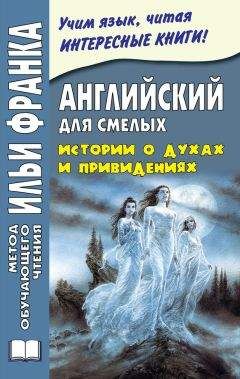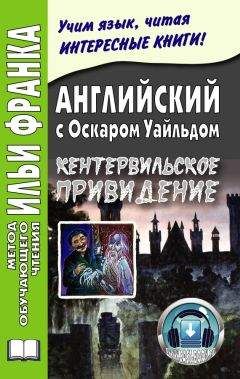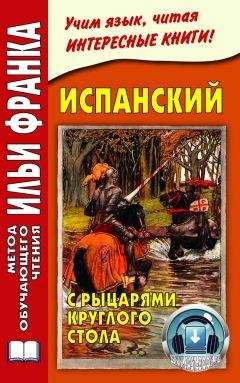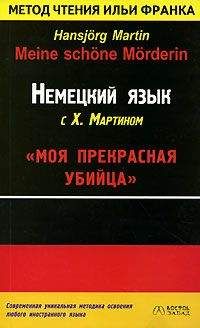He went down as usual to the prison next morning, and once again he was strangely beset with the feeling that there was some unseen presence there. He had before now had some odd psychical experiences, and knew that he was a ‘sensitive’ – one, that is, who is capable, under certain circumstances, of receiving supernormal impressions, and of having glimpses of the unseen world that lies about us. And this morning the presence of which he was conscious was that of the man who had been executed yesterday morning. It was local, and he felt it most strongly in the little prison yard, and as he passed the door of the condemned cell. So strong was it there that he would not have been surprised if the figure of the man had been visible to him, and as he passed through the door at the end of the passage, he turned round, actually expecting to see it. All the time, too, he was aware of a profound horror at his heart; this unseen presence strangely disturbed him. And the poor soul, he felt, wanted something done for it. Not for a moment did he doubt that this impression of his was objective, it was no imaginative phantom of his own invention that made itself so real. The spirit of Linkworth was there.
He passed into the infirmary, and for a couple of hours busied himself with his work (он прошел в лазарет и пару часов занимался своей работой). But all the time he was aware that the same invisible presence was near him (но все это время он осознавал поблизости то же незримое присутствие), though its force was manifestly less here than in those places which had been more intimately associated with the man (хотя проявлялось оно здесь значительно слабее: «хотя его сила была явно меньше здесь», чем в тех местах, что были теснее связаны с этим человеком; to associate – объединять, соединять). Finally, before he left, in order to test his theory he looked into the execution shed (наконец, перед уходом: «перед тем как он ушел», чтобы проверить свою теорию, он заглянул в пристройку, где проводились казни; shed – навес, сарай). But next moment with a face suddenly stricken pale, he came out again, closing the door hastily (но через мгновение, с внезапно побледневшим лицом, он снова вышел и торопливо закрыл за собой дверь; to strike – ударять; поражать; pale – бледный). At the top of the steps stood a figure hooded and pinioned (наверху: «на вершине лестницы» стоял силуэт в капюшоне и со связанными руками; step – шаг; ступень, ступенька; steps – стремянка, трап; to pinion – подрезать или связывать крылья; связывать /руки/), but hazy of outline and only faintly visible (с размытыми очертаниями и с трудом различимый: «и только слабо видимый»; hazy – неясный, смутный; haze – легкий туман, дымка). But it was visible, there was no mistake about it (но он был видим, отрицать это было невозможно: «в этом не было ошибки»).
He passed into the infirmary, and for a couple of hours busied himself with his work. But all the time he was aware that the same invisible presence was near him, though its force was manifestly less here than in those places which had been more intimately associated with the man. Finally, before he left, in order to test his theory he looked into the execution shed. But next moment with a face suddenly stricken pale, he came out again, closing the door hastily. At the top of the steps stood a figure hooded and pinioned, but hazy of outline and only faintly visible. But it was visible, there was no mistake about it.
Dr Teesdale was a man of good nerve, and he recovered himself almost immediately (доктор Тисдейл был человеком с крепкими: «хорошими» нервами, и он пришел в себя почти тотчас же; to recover – вновь обретать; оправляться, приходить в себя от /болезни, удивления, испуга и т. п./), ashamed of his temporary panic (устыдясь своей временной паники). The terror that had blanched his face was chiefly the effect of startled nerves, not of terrified heart (ужас, что лишил красок его лицо, был, главным образом, результатом нервного потрясения, а не недостатка мужества: «пораженных нервов, а не запуганного сердца»; to blanch – делать бледным), and yet deeply interested as he was in psychical phenomena (и все же, как ни сильно он интересовался экстрасенсорными явлениями; deeply – глубоко; серьезно; psychical = psychic – нематериальный, психический; экстрасенсорный), he could not command himself sufficiently to go back there (он не смог настолько совладать с собой, чтобы: «не смог приказать себе» вернуться туда; sufficiently – достаточно, в достаточной мере). Or rather he commanded himself, but his muscles refused to act on the message (или, скорее, с собой он совладал, но его мускулы отказывались повиноваться командам; to act – действовать; message – сообщение, донесение; поручение; задание). If this poor earthbound spirit had any communication to make to him (если этому бедному прикованному к земле духу надо было что-то сказать ему; communication – сообщение), he certainly much preferred that it should be made at a distance (он определенно предпочел бы, чтобы это произошло на расстоянии). As far as he could understand, its range was circumscribed (насколько он понимал, радиус действия этого призрака был ограничен). It haunted the prison yard (он являлся на тюремном дворике; to haunt – часто заезжать, навещать /какое-либо место, людей/; обитать; являться /о привидении/), the condemned cell (в камере для приговоренных), the execution shed (в пристройке для казней), it was more faintly felt in the infirmary (слабее он чувствовался в лазарете). Then a further point suggested itself to his mind (затем ему в голову пришло еще одно: «дальнейшее» соображение; point – пункт, момент; to suggest – внушать; подсказывать; mind – ум, разум), and he went back to his room and sent for Warder Draycott (и он вернулся в свой кабинет и вызвал надзирателя Дрейкотта; room – комната; to send – посылать), who had answered him on the telephone last night (который снял трубку, когда он позвонил в тюрьму: «который ответил ему по телефону» прошлым вечером).
Dr Teesdale was a man of good nerve, and he recovered himself almost immediately, ashamed of his temporary panic. The terror that had blanched his face was chiefly the effect of startled nerves, not of terrified heart, and yet deeply interested as he was in psychical phenomena, he could not command himself sufficiently to go back there. Or rather he commanded himself, but his muscles refused to act on the message. If this poor earthbound spirit had any communication to make to him, he certainly much preferred that it should be made at a distance. As far as he could understand, its range was circumscribed. It haunted the prison yard, the condemned cell, the execution shed, it was more faintly felt in the infirmary. Then a further point suggested itself to his mind, and he went back to his room and sent for Warder Draycott, who had answered him on the telephone last night.
‘You are quite sure (вы совершенно уверены),’ he asked, ‘that nobody rang me up last night, just before I rang you up (что никто мне не звонил прошлым вечером, как раз перед тем, как я вам позвонил)?’
There was a certain hesitation in the man’s manner which the doctor noticed (в поведении надзирателя была определенная неуверенность, которую заметил доктор; manner – манера, поведение).
‘I don’t see how it could be possible, sir (я не понимаю, как это может быть возможно, сэр),’ he said. ‘I had been sitting close by the telephone for half an hour before, and again before that (я полчаса сидел возле телефона до звонка, да и еще раньше тоже). I must have seen him, if anyone had been to the instrument (я бы должен был его увидеть, если кто-нибудь подходил к аппарату).’
‘And you saw no one?’ said the doctor with a slight emphasis (а вы никого не видели? – сказал доктор, слегка акцентировав свой вопрос; emphasis – выразительность, сила, ударение).
The man became more markedly ill at ease (стало еще заметнее, что надзирателю: «этому человеку стало более заметно» не по себе; ill at ease – не по себе, неловко; ≈ не в своей тарелке).
‘No sir, I saw no one,’ he said, with the same emphasis (нет, сэр, я никого не видел, – сказал он, так же акцентировав свой ответ).
Dr Teesdale looked away from him (доктор Тисдейл посмотрел в сторону: «прочь от него»).
‘But you had perhaps the impression that there was someone there (но, возможно, у вас возникло впечатление, что кто-то там был)?’ he asked, carelessly, as if it was a point of no interest (как бы между прочим спросил он: «он спросил небрежно, словно эта деталь значения не имела»; point – точка; пункт, момент, вопрос; interest – интерес, интересность; значимость).
‘You are quite sure,’ he asked, ‘that nobody rang me up last night, just before I rang you up?’
There was a certain hesitation in the man’s manner which the doctor noticed.
‘I don’t see how it could be possible, sir,’ he said. ‘I had been sitting close by the telephone for half an hour before, and again before that. I must have seen him, if anyone had been to the instrument.’
‘And you saw no one?’ said the doctor with a slight emphasis.
The man became more markedly ill at ease.
‘No sir, I saw no one,’ he said, with the same emphasis.
Dr Teesdale looked away from him.
‘But you had perhaps the impression that there was someone there?’ he asked, carelessly, as if it was a point of no interest.
Clearly Warder Draycott had something on his mind (определенно на уме у надзирателя Дрейкотта что-то было), which he found it hard to speak of (о чем он находил трудным говорить).
‘Well, sir, if you put it like that,’ he began (ну, сэр, если так вопрос ставить, – начал он). ‘But you would tell me I was half asleep (но вы, наверное, скажете мне, что я был полусонный), or had eaten something that disagreed with me at my supper (или за ужином съел что-то, чего я не перевариваю; to disagree – не подходить, противоречить).’
The doctor dropped his careless manner (доктор отбросил свою безучастную манеру; to drop – капать; бросать; careless – небрежный, беспечный).
‘I should do nothing of the kind (ничего подобного я не сделаю),’ he said, ‘any more than you would tell me that I had dropped asleep last night (как и вы не скажете мне, что я вздремнул вчера вечером; to drop asleep – заснуть), when I heard my telephone bell ring (когда услышал звонок телефона). Mind you, Draycott, it did not ring as usual (заметьте, Дрейкотт, он не зазвонил как обычно), I could only just hear it ringing, though it was close to me (я едва слышал его звонок, хотя он был рядом со мной). And I could only hear a whisper when I put my ear to it (и я смог расслышать только шепот, когда поднес трубку к уху: «приложил ухо к нему»). But when you spoke I heard you quite distinctly (но когда говорили вы, я слышал вас вполне отчетливо). Now I believe there was something – somebody – at this end of the telephone (и вот я полагаю, что на этом конце телефонной линии было что-то – кто-то). You were here, and though you saw no one, you, too, felt there was someone there (вы тут были, и хотя вы никого не видели, вы тоже почувствовали, что кто-то тут был).





